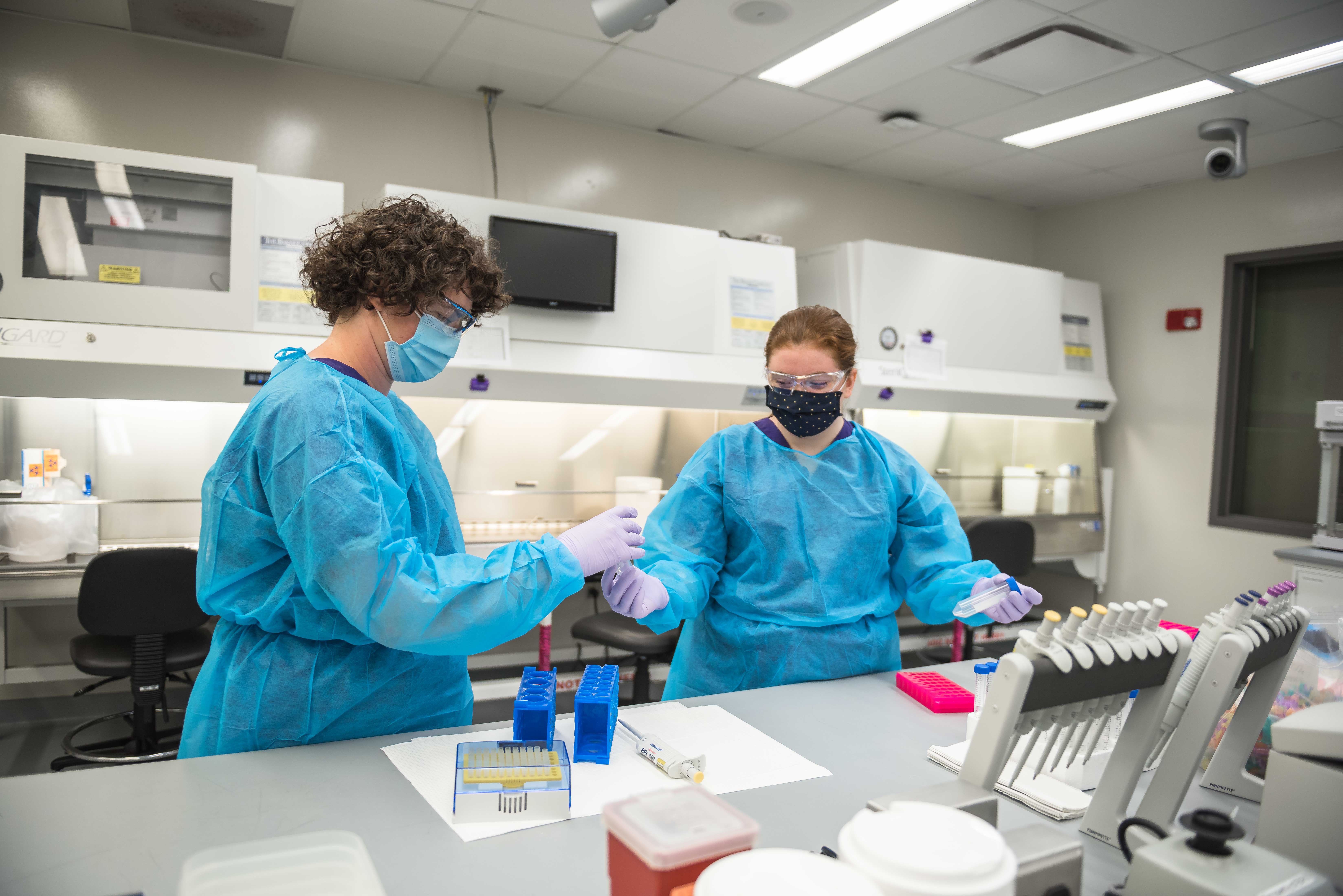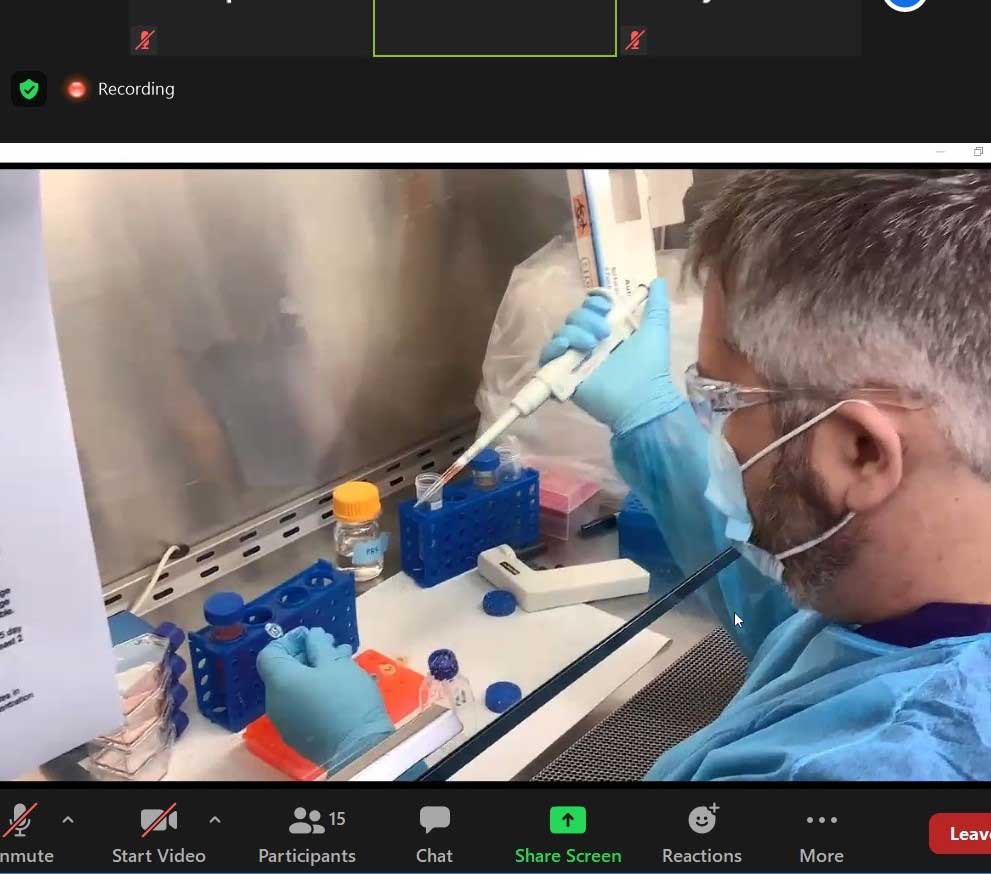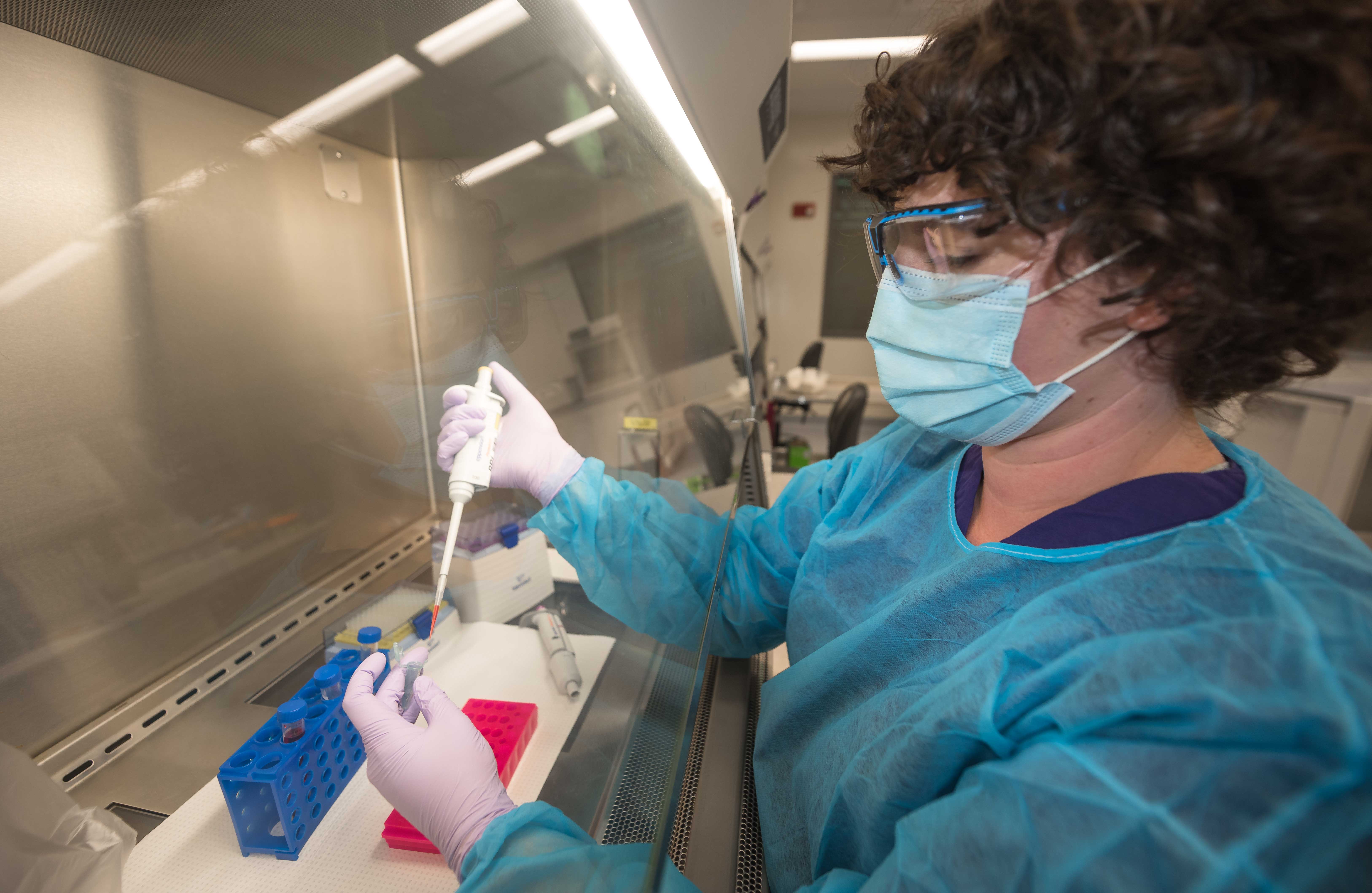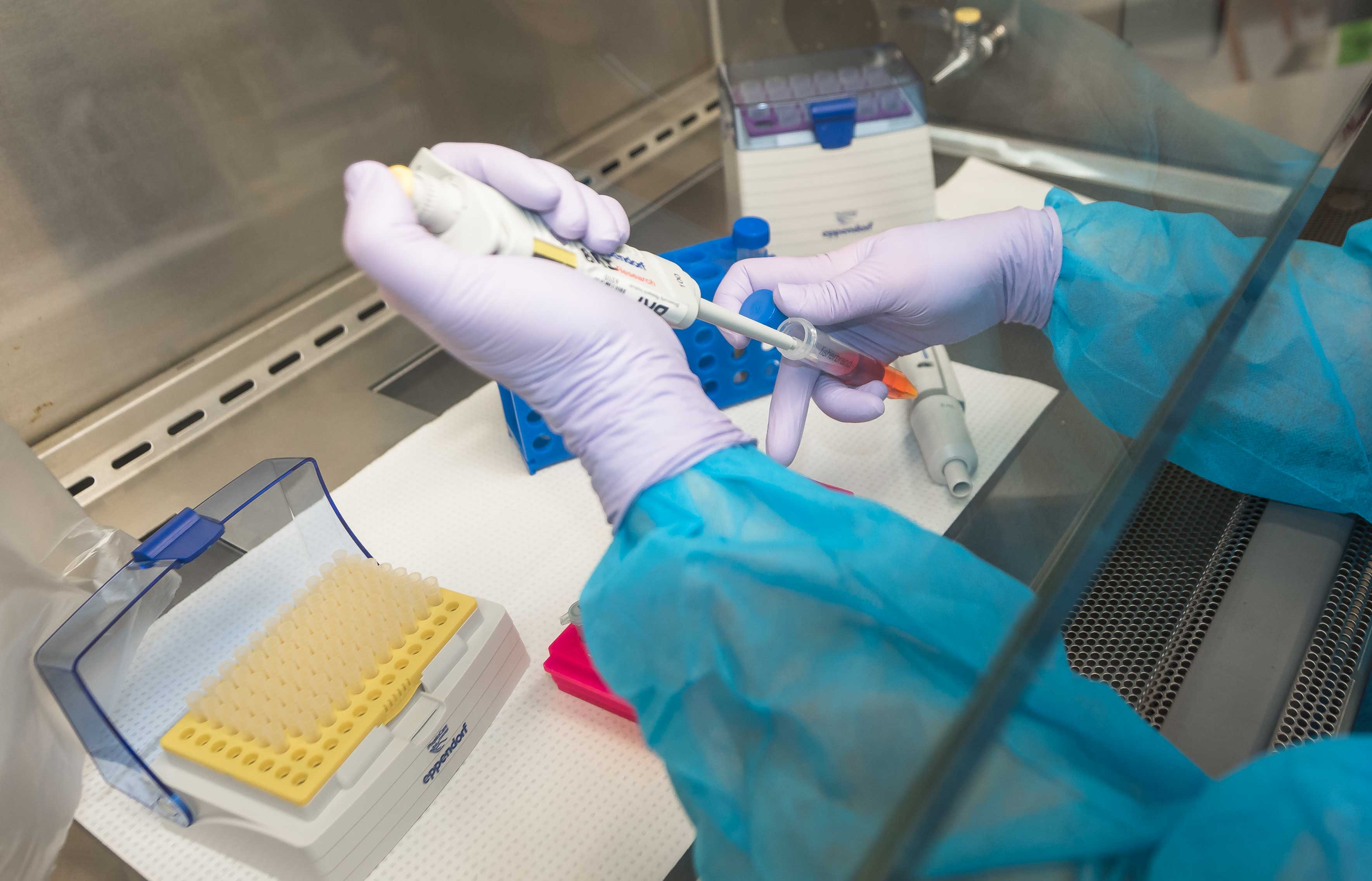NBAF Office of Communications
Website: usda.gov/nbaf/media
Hometown interest: Baldwin City, Bonner Springs, Olathe and Overland Park, Kansas;
Cape Coral, Florida; Equality, Illinois; Marceline and Webster Groves, Missouri,
Written by Stephanie Jacques, stephanie.jacques@usda.gov
Manhattan, Kansas, Aug. 31, 2020 — The next generation of high-containment laboratory technicians is getting a glimpse into how to support U.S. Department of Agriculture scientific activities at the National Bio and Agro-Defense Facility, or NBAF.
Through a new USDA Animal and Plant Health Inspection Service, or APHIS, initiative, implemented in collaboration with Kansas State University, 10 undergraduate students and recent graduates completed the NBAF Laboratorian Training Program, or NLTP, on Aug. 7 to prepare them for potential careers at NBAF, a high-containment animal disease facility with biosafety level-2, -3, and -4 capabilities.
"We believe NLTP will serve as a pipeline to develop the next generation of laboratory support for federal laboratories such as NBAF but also biocontainment facilities in academia or industry," said Dr. Kimberly Dodd, director of the Foreign Animal Disease Diagnostic Laboratory, or FADDL, at Plum Island Animal Disease Center, the USDA reference laboratory that will transition to NBAF once the facility is complete. "These highly qualified students received valuable training to build the expertise needed for a career in infectious disease diagnostics, vaccine development and research."
Discussions ranged from high-containment laboratory safety protocols and emergency procedures, to immunology and virus transmission. According to Dr. Josh Willix, lead K-State instructor for the program, the students' favorite topics included virus activity during lab tests, disease transmission and how diseases are diagnosed.
"They got excited any time they got to see a virus killing cells in culture under a microscope," Willix said. "In addition to learning an array of virological techniques, they really enjoyed specific discussions on various diseases including diagnosis and outbreaks such as Ebola."
Students had the opportunity to get familiar working within the rigors of the high-containment laboratory environment and hear from professionals who support laboratory diagnostics at the nation's top facilities including FADDL, as well as K-State's Biosecurity Research Institute, or BRI, and College of Veterinary Medicine Diagnostic Medicine/Pathobiology department.
"I have always thought biosecurity was really interesting and I’ve been curious about NBAF," said Jenna Flory, NLTP participant and senior at K-State in biological systems engineering, Baldwin City. "This is a great lab experience but my favorite part of the program was getting to hear from scientists at Plum Island, their work and how they might respond to any potential disease outbreaks in the U.S."
The program was originally designed as a hands-on training but program coordinators adjusted it to be primarily online in the wake of COVID-19 by video recording lab techniques and hosting video presentations for eight weeks. They finished with a hands-on review at the BRI on the ninth week.
"I was happy to see the students engaged and asking questions during the video presentations," said Dr. Dana Vanlandingham, K-State's program leader and College of Veterinary Medicine professor of diagnostic medicine/pathobiology. "I could really see their growth in understanding various diagnostic techniques over the summer."
Lisa Pauszek and Alexa Bracht, both FADDL microbiologists leading APHIS workforce development efforts, developed the program at the BRI in collaboration with K-State scientists in the Vanlandingham group including Willix, Ashley Bilyeu and Susan Hettenbach. The program was sponsored by USDA APHIS funding.
“This team has led a tremendous effort to rapidly transition a hands-on course to a virtual experience and successfully fostered active participation and engagement for eight weeks," Dodd said. "I’m so proud of what they accomplished."
According to Dodd, the university’s proximity to NBAF, the BRI’s unique biosafety training lab/classroom and College of Veterinary Medicine's diagnostic laboratory made the university the ideal location for the program.
In addition to Flory, Kansas State University participants included: Adrienne Alder, senior in medical microbiology, Bonner Springs; Adeline Chang, 2020 graduate in microbiology, Olathe; Linnea Rimmer, senior in animal sciences and industry, Overland Park; Theresa Quintana, senior in microbiology, Cape Coral, Florida; Kayla Ewell, senior in microbiology, Equality, Illinois; Em Knobbe, senior in animal sciences and industry, Webster Groves, Missouri. Also, from the University of Missouri at Columbia, Natalie Allen, a 2020 bachelor's degree graduate, Marceline, Missouri, participated in the program.
The USDA and K-State will host a second year of the NLTP in summer 2021. A related program, the NBAF Scientist Training Program, or NSTP, is a nationwide graduate training program to support development of the next generation of veterinary scientists for NBAF.
#
The mission of the National Bio and Agro-Defense Facility, or NBAF, is to protect the U.S. against transboundary, emerging and zoonotic animal diseases that threaten our food supply, agricultural economy and public health.




